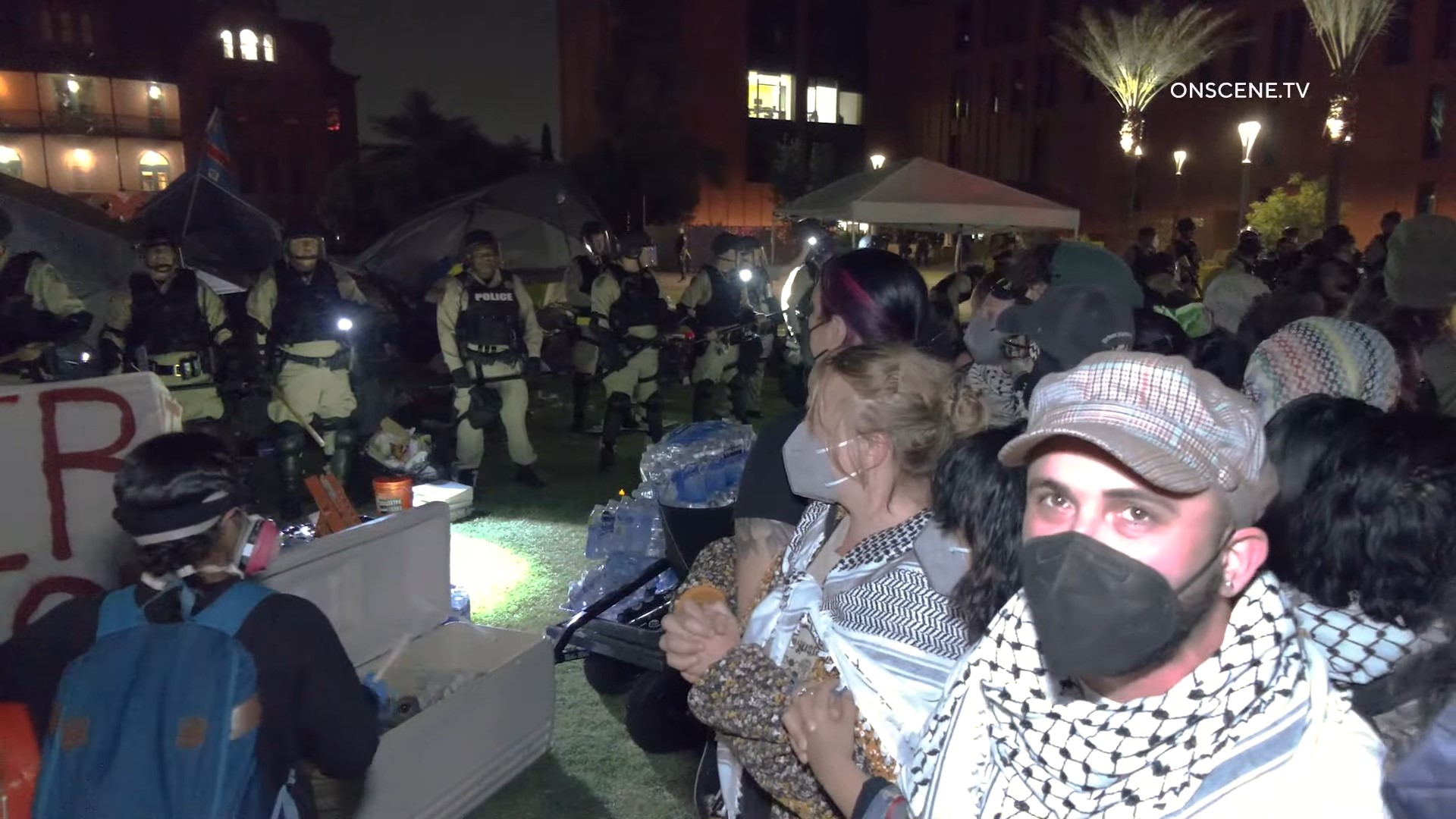In a recent development that’s stirring up more buzz than a hive of angry bees at Arizona State University (ASU), a judge has put the brakes on a motion to lift the ban on twenty students suspended amid anti-Israel protests. This legal drama, which is as gripping as any courtroom thriller, unfolded in the U.S. District Court for the District of Arizona, and it’s got everyone from First Amendment enthusiasts to college debate club members on the edge of their seats.
The backdrop of this legal saga is the ASU campus, where students — pumped full of youthful zeal and a dash of political fervor — decided to protest against Israel. The catch, however, is that their spirited demonstration landed them in hot water, leading to suspensions that they claim are throwing a wrench in their academic pursuits. Their argument? That being barred from enrolling in classes due to the suspension is causing “irreparable harm” and trampling over their sacred First Amendment rights.
Now, here’s where the plot thickens: Approximately 72 individuals found themselves in cuffs on April 26, taking the term “academic detention” to a whole new level. These weren’t just students caught up in the moment; faculty members also joined the fray, blurring the lines between educators and activists. The scene on the Old Main lawn was cleared by police officers overnight, in what can only be described as the most dramatic campus cleanup operation since… well, probably ever.
Judge John Tuchi, tasked with untangling this knotty issue, wasn’t buying what the plaintiffs were selling. According to him, the evidence presented didn’t quite cut the mustard when it came to proving a violation of First Amendment rights or the claim of “irreparable harm.” It seems the judge’s gavel has spoken, and for now, the suspensions stand firm like a stubborn professor refusing to round up your 89.4% to an A.
The protesters aren’t waving the white flag just yet, though. Calls for the university to drop charges and lift suspensions have echoed across campus, with demonstrations continuing to unfold as the case awaits its day in court. Amidst this cacophony, another battle rages at the University of Arizona, where protesters and authorities are engaged in a standoff worthy of a spaghetti western showdown, complete with state troopers armed with pepper ball guns and gas masks.
This unfolding drama at ASU is more than just a legal skirmish; it’s a litmus test for the boundaries of free speech and the extent to which activism can disrupt the academic environment. It raises important questions about where we draw the line between voicing dissent and maintaining order, and whether suspensions are a necessary disciplinary tool or an overreach that stifles expression.
The campus lawn at ASU has become a battleground for a much larger debate about rights, responsibilities, and the role of higher education in fostering civic engagement. Whether you’re pro-protest or pro-peace, this case serves as a reminder that the pen (and the protest sign) can be mightier than the sword, but sometimes it’s the gavel that gets the last word.


Leave a Comment